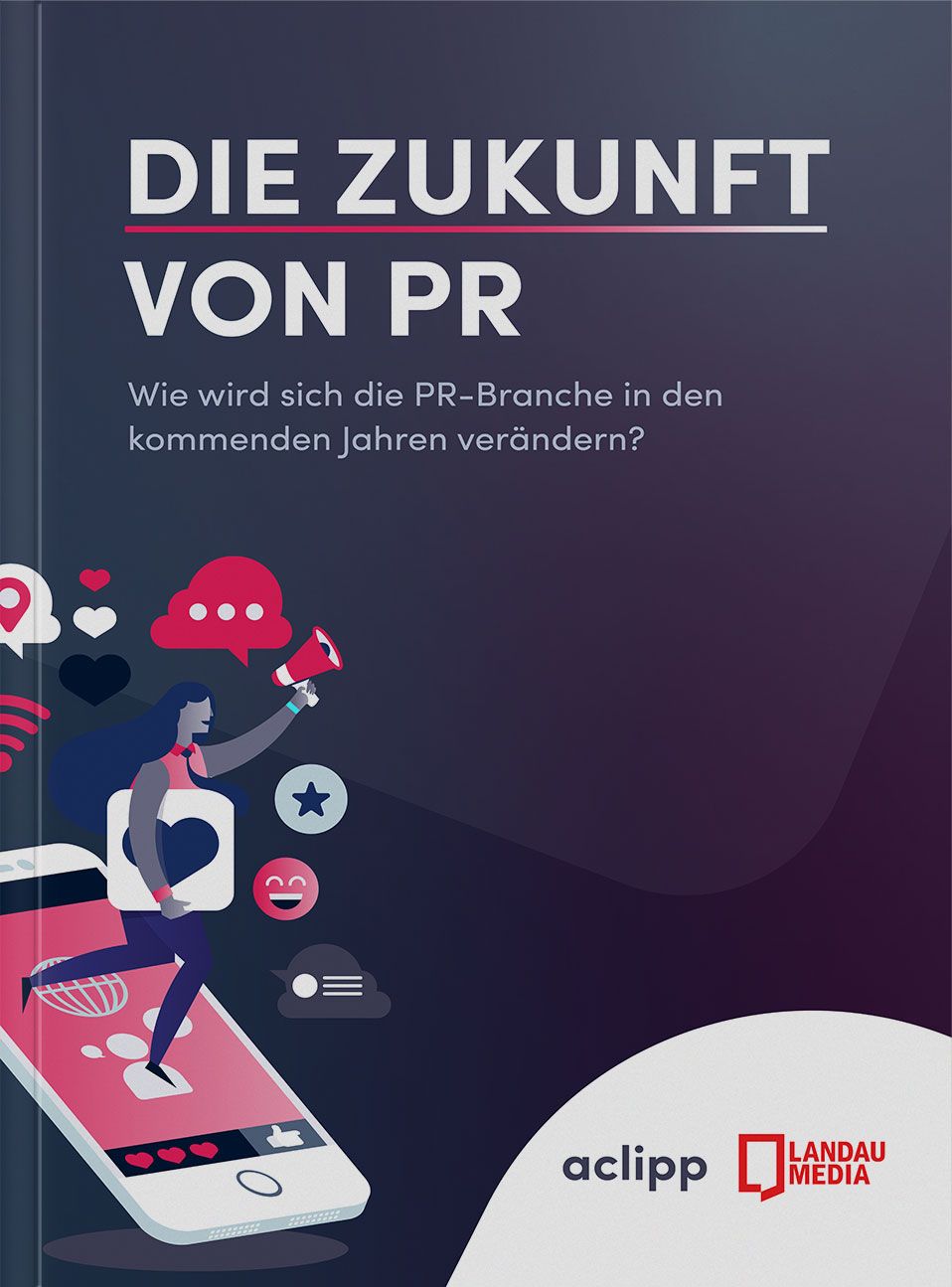The Future of PR
- Digitalisierung treibt PR-Transformation voran: Tools und digitale Kanäle dominieren.
- Social Media als PR-Kern: Facebook, Instagram und LinkedIn bleiben zentrale Plattformen.
- Influencer-PR wird entscheidender: 58 % der PR-Schaffenden arbeiten mit Influencern.
- Work-Life-Balance in der PR-Branche: 33 % bewerten sie als unzureichend.
- Integration von PR und Marketing: Verschmelzung der Disziplinen für konsistente Kommunikation.
- Diversität und Inklusion als Schlüsselthema für die Zukunft der PR.

The public relations (PR) industry is undergoing rapid changes driven by digital transformation, evolving communication channels, and new tools. This article summarizes key findings from a comprehensive market study conducted by aclipp, involving over 220 PR professionals from the DACH region. The study highlights critical trends and insights shaping the future of PR, providing valuable guidance for agencies, in-house teams, and communication experts.
The Evolution of PR: Key Insights
1. Digital Transformation and PR
The PR landscape is increasingly dominated by digital channels and data-driven processes. Social media platforms like Facebook, Instagram, and LinkedIn have become indispensable for modern PR strategies. The shift towards digital has also led to greater reliance on media monitoring, KPI analysis, and advanced reporting tools.
2. The Rise of Social Media and Influencer PR
Social media is at the heart of PR today, with 94% of PR professionals using it as a core component of their strategy. Influencer partnerships are becoming increasingly important, with 58% already collaborating with influencers and another 26% planning to do so in the near future. Effective influencer PR requires careful selection and alignment with brand values.
3. Work-Life Balance in the PR Industry
The workload in the PR industry continues to rise, leading to concerns about work-life balance. Despite the high flexibility offered by home office options (89% of PR professionals can work remotely), 33% still rate their work-life balance as poor. Addressing these challenges is crucial to maintaining employee well-being and long-term productivity.
4. Convergence of PR and Marketing
The boundaries between PR and marketing are increasingly blurred. Over 70% of respondents reported offering additional services like content production, communications consulting, and social media marketing alongside traditional PR work. This integration allows for a more cohesive brand presence across various channels.
5. Diversity and Inclusion in PR
Diversity and inclusion are becoming essential focus areas for the PR industry. As the industry continues to evolve, ensuring diverse representation and inclusive communication practices will be key to building stronger connections with a wider audience.
Conclusion
The future of PR is digital, data-driven, and increasingly collaborative. As PR professionals navigate these shifts, they must embrace new tools, adapt to changing communication channels, and stay ahead of emerging trends like influencer marketing and the integration of PR with broader marketing strategies.
